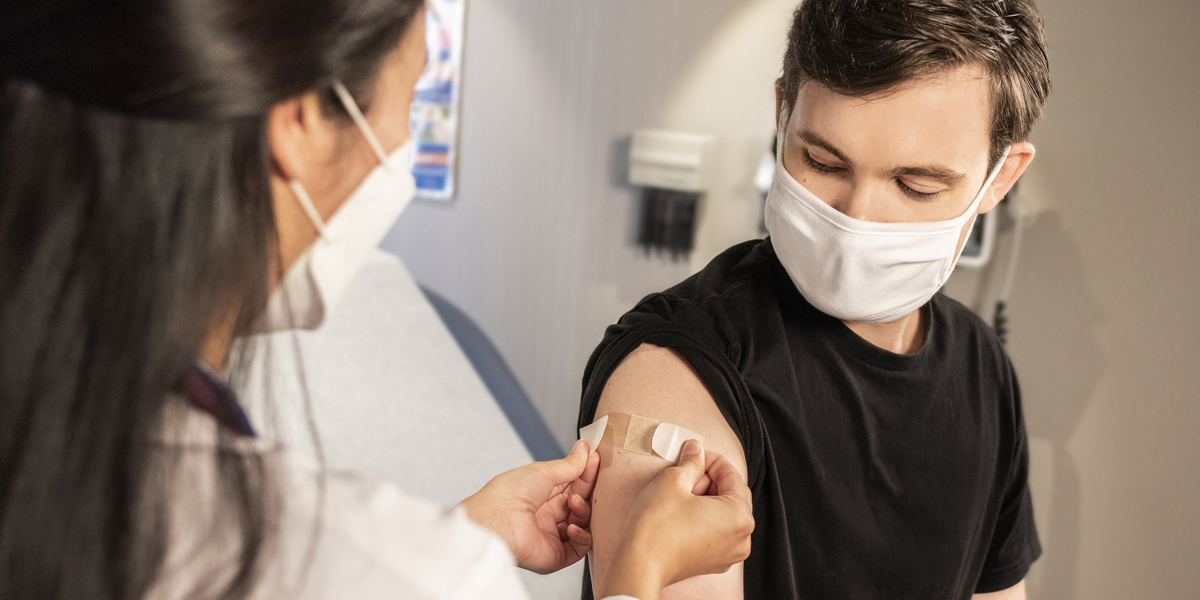
As COVID-19 vaccine cards rolled out across several Canadian provinces in September, the number of people getting vaccinated increased in provinces like B.C. But those numbers have now slowed, with some communities facing particular challenges when it comes to vaccine uptake.
The UBC Innovation Support Unit (UBC ISU) at the faculty of medicine’s department of family practice is working to address this problem by helping communities co-develop local solutions and reduce barriers to immunization in real-time.

Dr. Morgan Price
Through their Immunization Primary and Community Care (immPACC) Mapping workshops—delivered across Western Canada through an interprovincial network of trained facilitators—the ISU is bringing together evidence, simulated patient stories, and design thinking to help communities collaboratively plan with their key stakeholders for more equitable vaccinations.
“The immPACC method is designed to help communities address the barriers to vaccine uptake and accelerate those conversations to improve local planning in a patient-centred manner,” said Dr. Morgan Price, director of the UBC ISU and associate head for research and innovation in the department of family practice. “We see that it fast-tracks implementation and complements what public health is doing, because it brings local context to the planning table.”
ISU’s local approach is already making a difference.
Recently in Manitoba, a low-income housing complex was identified as having low vaccine uptake after local family physicians reviewed patient records. Using UBC’s immPACC method, a team of community health workers in Manitoba offered a vaccination clinic, which led to an estimated doubling of the immunization rate in the complex.
Thanks to this early success, Manitoba is now using UBC’s immPACC method as part of a new $14 million project to reduce vaccine hesitancy and boost immunization uptake in that province.
“The immPACC method is designed to help communities address the barriers to vaccine uptake and accelerate those conversations to improve local planning in a patient-centred manner.”
Dr. Morgan Price
Another workshop in Manitoba helped identify approaches and locations to support immunization for Indigenous community members. This led to a successful new vaccine clinic location co-designed by local voices.
According to Dr. Price, these successes are an early indicator of how UBC’s immPACC method could help increase COVID vaccine confidence and uptake in other Canadian provinces.
The UBC ISU received funding from the Government of Canada to develop immPACC and train facilitators across Canada’s four Western provinces. Twenty-three facilitators have been trained so far across B.C., Alberta, Saskatchewan and Manitoba, with more training sessions planned in the coming months, and the possibility of expansion throughout Canada in the future.
The UBC ISU continues to partner with organizations to support vaccine uptake, including 19 to Zero, the University of Manitoba, as well as a maternity research network at the University of Calgary.
To learn more about the immPACC method, visit CovidToolkit.ca.
The UBC ISU launched in 2018 thanks to the UBC faculty of medicine’s Strategic Investment Fund.